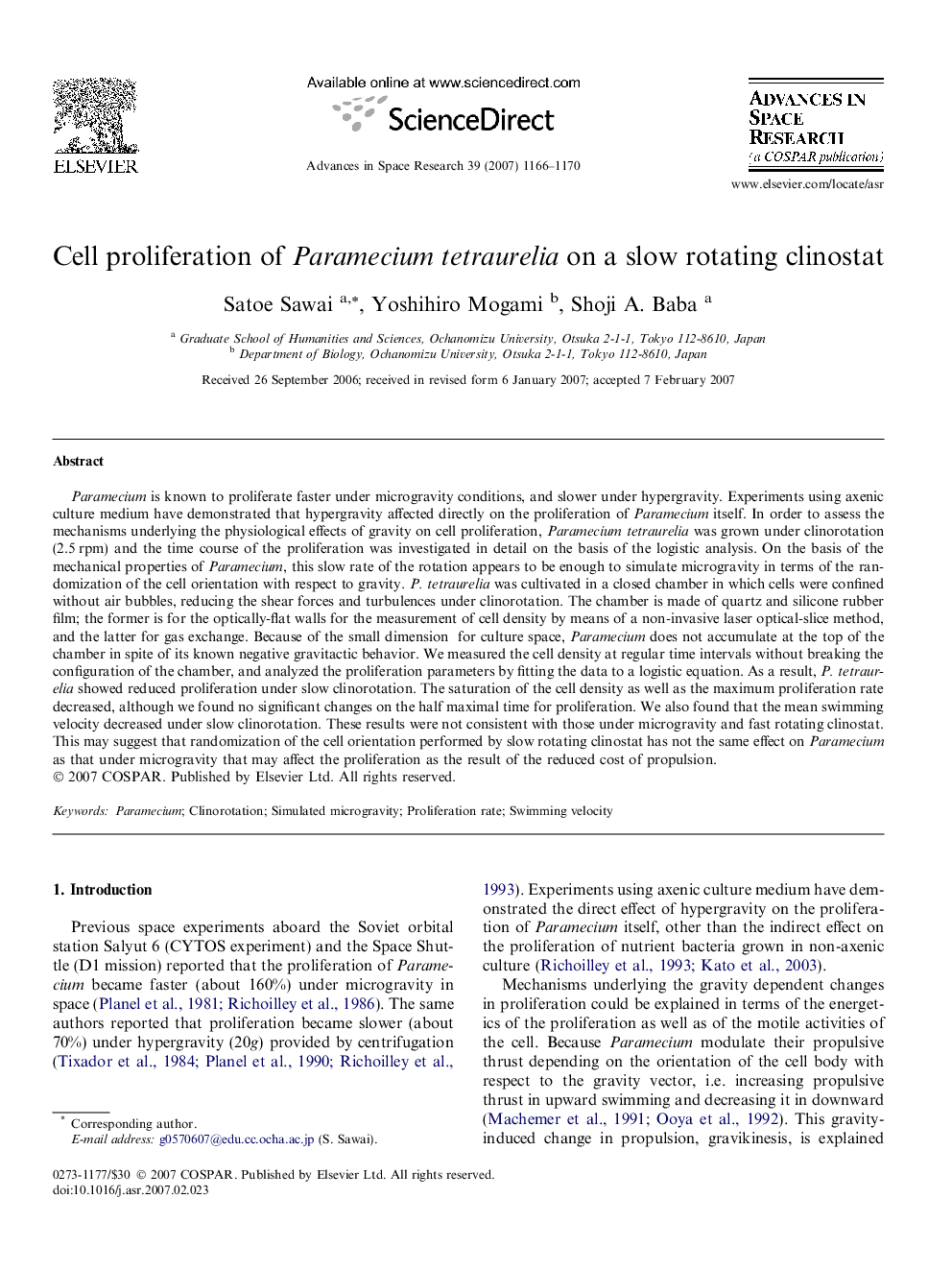| Article ID | Journal | Published Year | Pages | File Type |
|---|---|---|---|---|
| 1768946 | Advances in Space Research | 2007 | 5 Pages |
Abstract
Paramecium is known to proliferate faster under microgravity conditions, and slower under hypergravity. Experiments using axenic culture medium have demonstrated that hypergravity affected directly on the proliferation of Paramecium itself. In order to assess the mechanisms underlying the physiological effects of gravity on cell proliferation, Paramecium tetraurelia was grown under clinorotation (2.5Â rpm) and the time course of the proliferation was investigated in detail on the basis of the logistic analysis. On the basis of the mechanical properties of Paramecium, this slow rate of the rotation appears to be enough to simulate microgravity in terms of the randomization of the cell orientation with respect to gravity. P. tetraurelia was cultivated in a closed chamber in which cells were confined without air bubbles, reducing the shear forces and turbulences under clinorotation. The chamber is made of quartz and silicone rubber film; the former is for the optically-flat walls for the measurement of cell density by means of a non-invasive laser optical-slice method, and the latter for gas exchange. Because of the small dimension for culture space, Paramecium does not accumulate at the top of the chamber in spite of its known negative gravitactic behavior. We measured the cell density at regular time intervals without breaking the configuration of the chamber, and analyzed the proliferation parameters by fitting the data to a logistic equation. As a result, P. tetraurelia showed reduced proliferation under slow clinorotation. The saturation of the cell density as well as the maximum proliferation rate decreased, although we found no significant changes on the half maximal time for proliferation. We also found that the mean swimming velocity decreased under slow clinorotation. These results were not consistent with those under microgravity and fast rotating clinostat. This may suggest that randomization of the cell orientation performed by slow rotating clinostat has not the same effect on Paramecium as that under microgravity that may affect the proliferation as the result of the reduced cost of propulsion.
Related Topics
Physical Sciences and Engineering
Earth and Planetary Sciences
Space and Planetary Science
Authors
Satoe Sawai, Yoshihiro Mogami, Shoji A. Baba,
